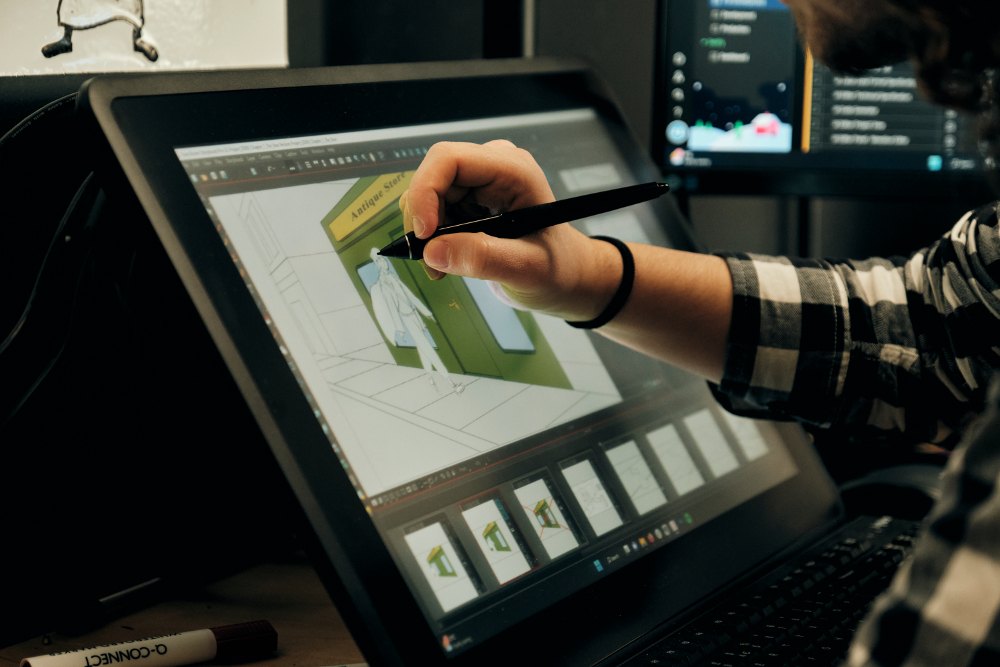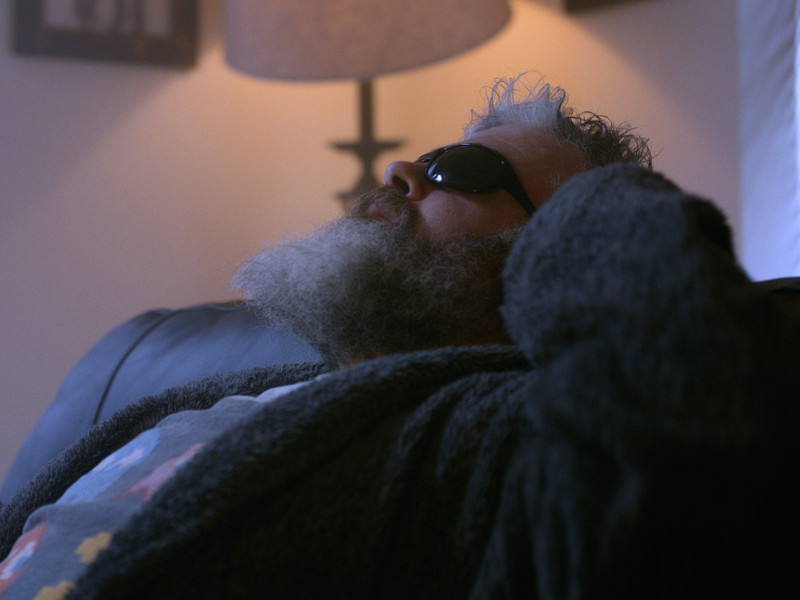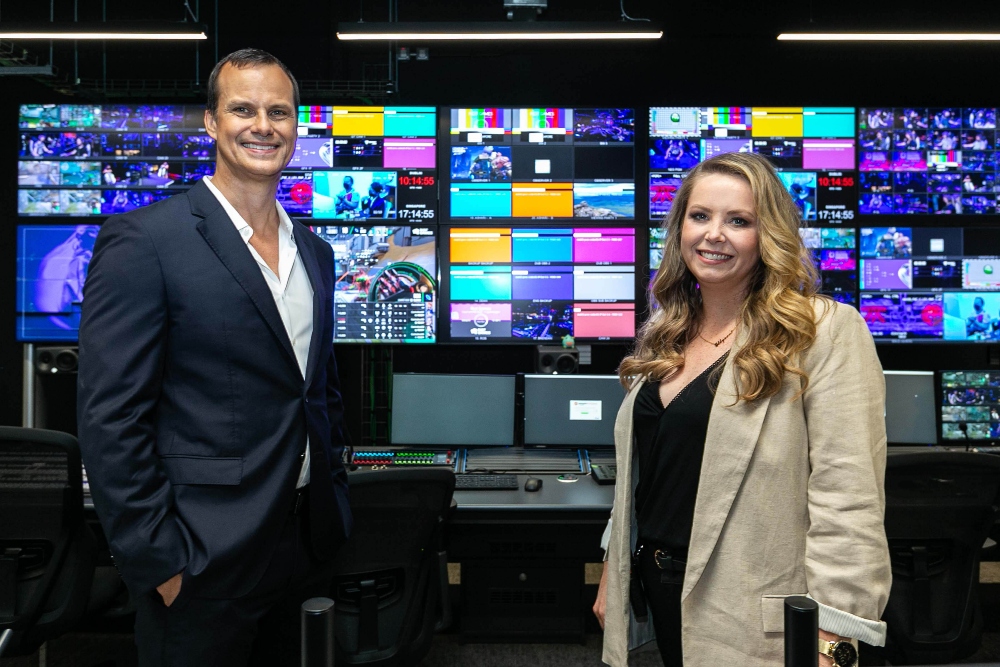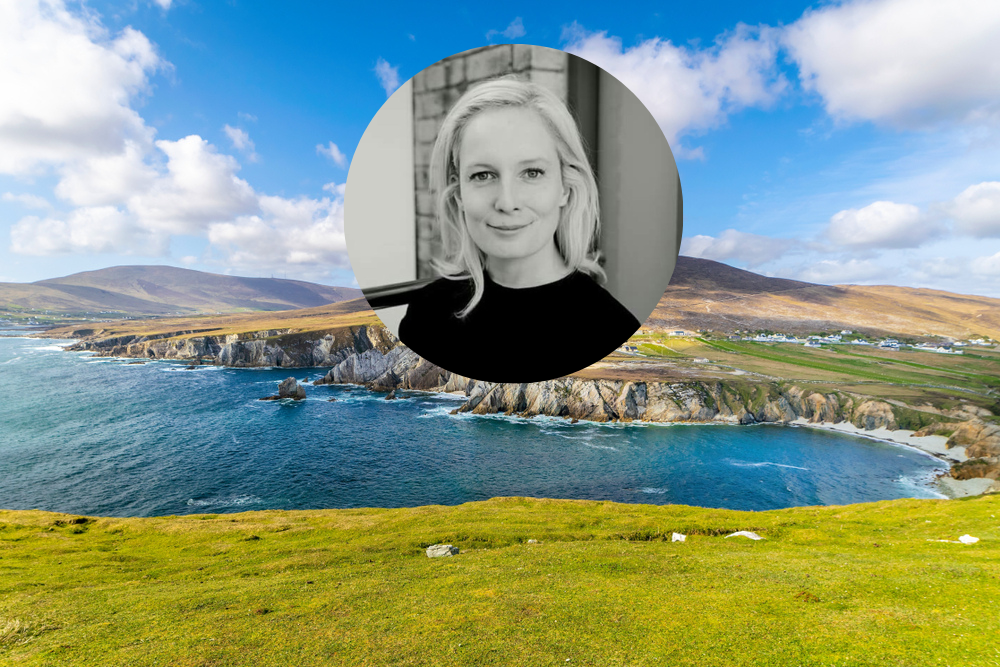Dublin video games studio Viridian Software director Thomas Cashman on making a difference in video gaming.
Thomas Cashman learned how to programme when he was a 10-years-old. He is director of Dublin-based video game studio Viridian Software.
He talks to ThinkBusiness about his mission to develop story-focused video games that have a positive impact on those who play them, as well as how to avoid the pitfalls of starting out in game development.
“When I was 10 years old, my grandmother and some of my relatives chipped in to buy me a computer and I immediately set out to learn how to code”
Why did you set up Viridian Software?
I wanted to make video games since I was six years old. I was intrigued and obsessed by gaming. I learned about programming through interviews in magazines with Jason Rubin and Andy Gavin, the founders of video game company Naughty Dog. When I was 10 years old, my grandmother and some of my relatives chipped in to buy me a computer and I immediately set out to learn how to code.
I started a video game company after college but that failed so I went back to working in tech. When I tried again I had enough money to last 10 months. I programmed games in my spare time so I had a prototype of a game already. I spent the time going to conferences around Europe, pitching the prototype to publishers to get funding. In the final week before the money ran out I got a publisher, it took about 24 pitches to get a publisher for the game.
“Our storytelling is our strong point. In Ireland we often undersell how creative we are. We have some of the greatest poets, writers and musicians in the world”
What makes Viridian Software stand out?
Our storytelling is our strong point. In Ireland we often undersell how creative we are. We have some of the greatest poets, writers and musicians in the world. For such a small country the impact we have on the world is huge. We’ve just been approved for a Creative Media Europe grant to start developing a new IP. We expect to spend about €500,000 on it. We’re hoping with all the lessons we’ve learned and challenges we’ve overcome that this will be our home run.
“Developers in Ireland are good at what they do but when you see the standard of video games in other countries, it’s a whole other league”
What challenges did you meet and how did you overcome them?
There aren’t any major Irish companies doing original IP development. There are some successful studios, but they’re small. After my failure at setting up a game development company, I moved to Germany and it was eye opening. Developers in Ireland are good at what they do but when you see the standard of video games in other countries, it’s a whole other league
We’ve been lobbying in Ireland for a games tax credit for years. It was approved two years ago and came into effect in January this year. The UK, Sweden and Germany, the three largest gaming industries in Europe, have had credits since the 80s. We’re hoping the industry will start to grow here now.
I spent €20,000 of my own money trying to get my company off the ground. With no investors, the whole enterprise was bootstrapped by me. A lot of games companies in Ireland making IP, or small independent companies are facing that same challenge. We’re still only breaking even after five years in business. The product failure in 2021 meant we didn’t see any revenue because the publisher is still making their money back. That was a big setback for us. Most other studios would have folded but because a lot of our staff are technical and we have experience bringing games from different platforms, we pivoted into offering that as a service to publishers and larger developers. Between that and the outsourcing work, we’ve survived.
If I had an investor and €2m in the bank everything would be a lot easier, but would I have learned the lessons I’ve learned along the way. Our budget is restricted every year so we do everything with precision, there’s no wiggle room for inefficiencies.
“With no investors, the whole enterprise was bootstrapped by me. A lot of games companies in Ireland making IP, or small independent companies are facing that same challenge”
What is the support for entrepreneurs in Ireland like and how could it be improved?
Anytime I’ve talked to the Local Enterprise Office, they say they can’t help because they’ve been burned too many times with games companies. Games take two to five years to make, that’s why the likes of Enterprise Ireland are averse to the risk. VC is about quick investment and quick return. If an investor isn’t going to get their money back for seven years, they’re unlikely to consider investing.
The supports aren’t great in Ireland. The new tax credit should help but the project has to cost at least €100,000. That’s ok for us because we’re established but not for a start-up, and grants are only available to studios that have released at least one game commercially, so start-ups aren’t eligible.
Imirt, which represents game developers and creators in Ireland is lobbying Screen Ireland to get prototyping grants, so people can experiment with ideas for games. All the successful Irish game developers live abroad. If you are a game development graduate, and there are plenty every year, there’s no work here so they go abroad or change sectors.
There is a lack of mentorship in the games industry, I had to figure out a lot myself and there’s no network. I networked by going to conferences abroad or through publishers we worked with. A lot of assumptions I made about programming, things that I thought were possible on the likes of Xbox, PlayStation, and Nintendo weren’t possible at all. The advances in graphics are amazing but in terms of tooling and capabilities, the games industry is very far behind where I had come from in server programming. We had to build the tools ourselves to achieve what we wanted, which also costs money. If we had a mentor, they could have warned us. I was fortunate that I found a business advisor who helps me with the business side of the company. I’m a technical and creative person, not a business one.
“Most other studios would have folded but because a lot of our staff are technical and we have experience bringing games from different platforms, we pivoted into offering that as a service to publishers and larger developers”
What lessons have your learnt and what would you pass on to other businesses?
Learning how to structure your pitch to what publishers want is important. There’s no point just talking about the creative aspects because it’s a business proposal. The first time I tried to set up a video game company it was with friends. We were a group of programmers who still thought of game development as a hobby. We didn’t have the consumer focused approach we needed. A lot of people who do programming want to become game developers, but it’s very challenging. With video games you could have the best art, the best programming and the best composer in the world but if your game isn’t fun, it won’t sell. A lot of developers focus solely on the creativity side. It’s not just a creative pursuit, it is a business.
Getting the right amount of funding is very important. A lot of developers just want to get a publishing deal. Be realistic about what you need, otherwise you’re setting yourself up to fail. That’s what happened us, we asked for less than we needed and paid for it out of our own pockets. We’re going to spend half a million on the new project because we want to make sure we have enough staff in every section, that people are paid well and that we can deliver the project effectively.
The other thing I would say to new developers is to visit games conferences abroad. A lot of games conferences have areas for independent developers, walk around the booths and compare your game to what’s on display there. Because I had that shock and a lot of other developers and founders in Ireland had that shock as well.
“Our budget is restricted every year so we do everything with precision, there’ s no wiggle room for inefficiencies”
What is your proudest moment?
We’ve taken our game to a lot of conferences. When we see someone playing it and enjoying themselves, there’s no better reward. We feel like we’re putting out something that’s good in the world and we need a lot more of that. We’re trying to tell stories and make experiences that have a positive impact on people. There’s a lot of stress and sadness and misery in the world. We need a lot more positivity and if we can bring some of that into the world with our games, that’s a very good result.
“There is a lack of mentorship in the games industry, I had to figure out a lot myself and there’s no network”
What are your plans for the future?
We have half the funding we need for our new game, we need a publisher to fund the second half. We work with a lot publishers in the US and Asia. We hope between all the connections we have that we can secure a deal that will allow us to launch in multiple languages and regions simultaneously. We want to make some amazing animation to tell the story in a creative way. We plan to launch on Nintendo, PlayStation and Xbox PC simultaneously.








